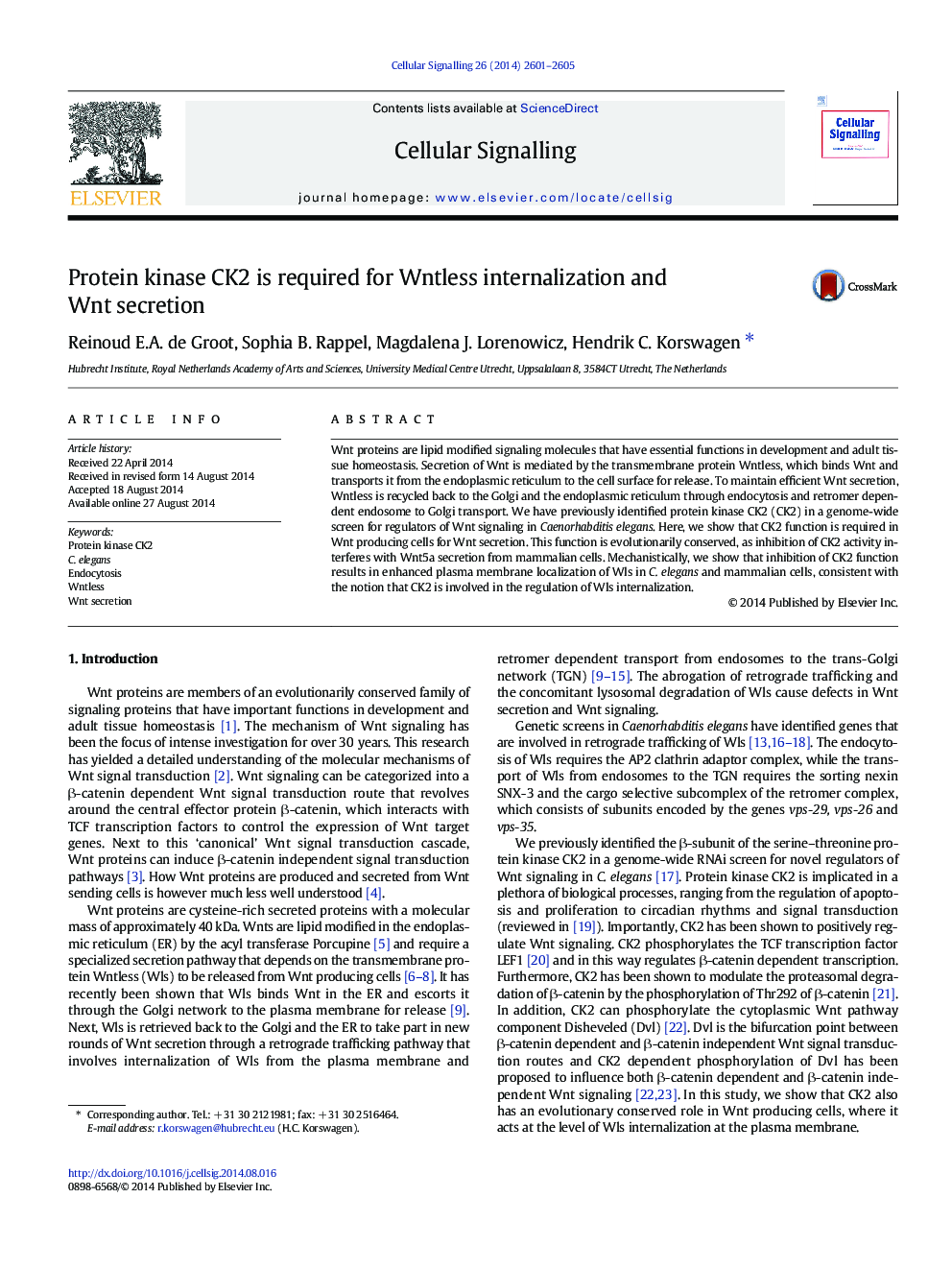| Article ID | Journal | Published Year | Pages | File Type |
|---|---|---|---|---|
| 10814894 | Cellular Signalling | 2014 | 5 Pages |
Abstract
Wnt proteins are lipid modified signaling molecules that have essential functions in development and adult tissue homeostasis. Secretion of Wnt is mediated by the transmembrane protein Wntless, which binds Wnt and transports it from the endoplasmic reticulum to the cell surface for release. To maintain efficient Wnt secretion, Wntless is recycled back to the Golgi and the endoplasmic reticulum through endocytosis and retromer dependent endosome to Golgi transport. We have previously identified protein kinase CK2 (CK2) in a genome-wide screen for regulators of Wnt signaling in Caenorhabditis elegans. Here, we show that CK2 function is required in Wnt producing cells for Wnt secretion. This function is evolutionarily conserved, as inhibition of CK2 activity interferes with Wnt5a secretion from mammalian cells. Mechanistically, we show that inhibition of CK2 function results in enhanced plasma membrane localization of Wls in C. elegans and mammalian cells, consistent with the notion that CK2 is involved in the regulation of Wls internalization.
Related Topics
Life Sciences
Biochemistry, Genetics and Molecular Biology
Biochemistry
Authors
Reinoud E.A. de Groot, Sophia B. Rappel, Magdalena J. Lorenowicz, Hendrik C. Korswagen,
